They express it in as many ways as there are people on the
planet, but whenever communicators describe their demanding jobs, they always –
and I mean always – tell me they’ve got too much to do. Everything has to be
done today, and every communication assignment is equal in the eyes of their
clients. While there’s no magic wand that instantly prioritizes work and allows
communication pros to say that magic “no” word, there are some things that can
help.
Litmus paper
Aligning with the “boss” on what matters most, can provide the most important tool of
the year: a litmus test. Articulating the top 3-5 priorities can give any
communicator license to push back in an ever-so-respectful way on the value of
doing anything that doesn’t pass the litmus test. It’s a veritable assessment
gauge for every new project coming over the transom. Or minimally, it allows us
to place any particular activity on the lower end of what needs to get done.
Have multiple bosses? Start with your direct (communications) boss and ask for
help aligning with others.
“Here’s how”mentality
Generally speaking, saying no to an assignment isn’t the best
of career moves. Just doesn’t quite have the ring of “On it, boss.” So the alternative “Here’s how it can get done” language, tone and spirit gives a communicator the ownership of the
assignment, but lets him or her offer other ways to get it done. Waiting longer
(de-prioritizing), seeking outside resources or getting incremental budget for
contractors shows you’re seeking a solution. And when you can articulate
other/immediate and higher priorities, it always makes for a better argument.
Let me tell you
Never ask the boss to prioritize your work for you. Show your growth and own
leadership by prioritizing the work you have – and the criteria you’ve used –
to start the conversation. You tell him/her. There are few things many
executives like less than having to prioritize their team members’ work.
Clean House
Part of prioritizing your own work should include getting rid of less
“value-added” stuff. Looking at regular meetings, reports, and more
transaction-based activities is good place to start. Do some spring cleaning a
few times a year and ask, “What would happen if I stopped doing this?” You
might be surprised how little the repercussions are for halting some of that
stuff.



One Response